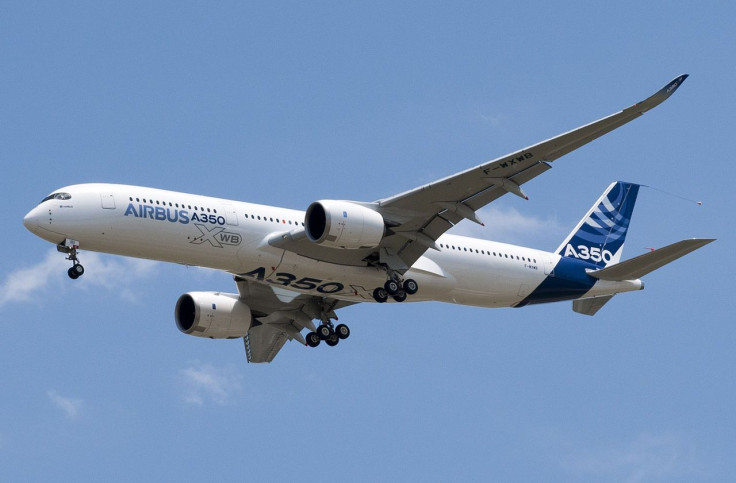Airbus's New Plane Promises To Reduce Jet Lag

It’s a jet with apparently no lag.
As reported by Fast Company earlier this December, the French-based aircraft manufacturer Airbus has designed a jet made to eliminate much of the hassle involving with flying long distances, including the tell-tale fatigue and disorientation that often comes with jet lag. Their A350 XLB, among many other features, sports LED lights that mimic the sun’s natural glow in order to maintain the body’s internal clock, otherwise known as the circadian rhythm. It even comes with an air filtration system that supposedly ensures optimal freshness by replacing the air every two to three minutes.
"The design process was about optimization, pushing the constraints, and opening up the box of solutions," Alain De Zotti, Airbus’s chief engineer of the A350 XWB program, told Fast Company.
For the uninitiated, jet lag, or circadian desynchrony as it’s more formally known, is caused when a person travels over long distances in a short period of time. The mismatch between our body’s perception of the time of day with the actual environment causes a wealth of short-term but frustrating health issues, most notably sleep disturbance. Though it might be 3 p.m. upon arriving in Los Angeles, our body’s natural clock is still set at 6 p.m. New York time, in other words.
If this disruption in the circadian rhythm, which can also be seen among people who work night shifts or are constantly exposed to artificial lighting, becomes chronic, though, it can have longer term effects on our body, leaving us more at risk for conditions like heart disease and obesity.
Part of the reason why jet lag wreaks havoc on the body is because it throws off our normal nighttime production of the hormone melatonin, which helps prompt us for our nightly slumber. The purpose behind A350’s LED design then is to trick the body in the other direction, by exposing us to faux sunlight that changes throughout the flight as the sun ordinarily would have had we remained home.
In principle, that could certainly work, since light therapy, whether natural or artificial, is often used to remedy jet lag and other circadian rhythm disorders. Still, it’s not as if the A350, which made its debut with Qatar Airways in January and made its first flight to the U.S. earlier this month, has undergone any clinical trials. In short, it’s perfectly alright to take their claims with at least a small grain of salt.
For those worried about jet lag on their next non-Qatarbound flight, though, there are plenty of useful remedies already available. These can include an over-the-counter dose of melatonin, exercise, and plenty of natural light.
Published by Medicaldaily.com



























